Iran Replaces Foreign Ministry Protocol Director After Diplomatic Incident
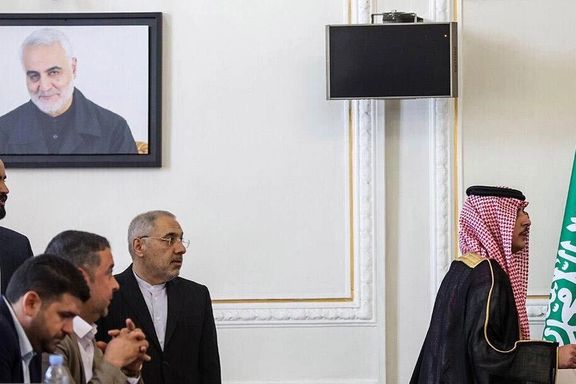
The director general of protocol at Iran's ministry of foreign affairs has been fired following a diplomatic incident during the recent visit of Saudi's foreign minister.

The director general of protocol at Iran's ministry of foreign affairs has been fired following a diplomatic incident during the recent visit of Saudi's foreign minister.
Following the resumption of diplomatic ties, Prince Faisal bin Farhan arrived in Tehran earlier this month and immediately held a meeting with his Iranian counterpart Hossein Amir-Abdollahian.
At the press conference which followed, the top Saudi diplomat realized he was standing in front of a picture of IRGC general Qassem Soleimani, Iran’s architect of proxy wars in the Middle East, including arming Yemen’s Houthis against Saudi Arabia.
Prince Faisal immediately requested the venue of the press conference to be changed and the Iranian side complied in a bid not to tarnish the newly revived relations between the two countries after years of tension which isolated the Iranian régime in the region.
Ten days after the debacle, Mehdi Honardoust has been replaced by Mohsen Mortezaiefar, son of Mahmoud Mortezaiefar, the former presenter of Friday prayers.
Soleimani was killed in an air strike in January 2020 ordered by former US President Donald Trump - a victory for many in the region who saw themselves as victims of his reign of terror.
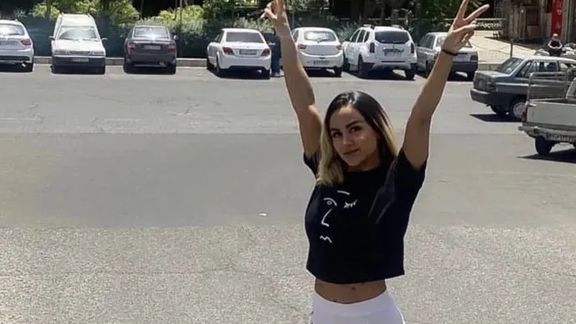
Following reports of the death of Pantea Eqbalzadeh, an Iranian translator of children's literature, a handwritten letter attributed to her says she committed suicide.
Twitter accounts published the letter of the young translator before her death, in which she wrote to her father that she no longer has "hope for the improvement of the situation in the country".
Pantea is the daughter of Shahram Eqbalzadeh, one of the prominent figures of Iranian children's literature.
Translations of The Longest Night by Marion Dane Bauer, Alligator Baby, Angela's Airplane, The Paper Bag Princess by Robert Munsch are among her works.
Meanwhile, on Tuesday, the US-based Human Rights Activists News Agency (HRANA) reported the suicide of a 39-year-old journalist from Dehdasht named Ali Sadeghi.
A source close to Sadeghi's family told HRANA that "Ali did this because of poverty and unemployment."
Iranian journalists, writers and translators have been under various political and economic pressures in recent decades. In addition to bans and censorship, job insecurity is the main reason for their dire economic situation.
Within the past nine months since the beginning of the nationwide "Women, Life, Freedom" protests in Iran, the suicide of a number of protesters after being released from prison has attracted a lot of attention on social media.
According to PEN America’s 2021 Freedom to Write Index, Iran jailed the fourth-highest number of writers and public intellectuals in the world. In 2022, arrests of writers and other artists have spiked dramatically.
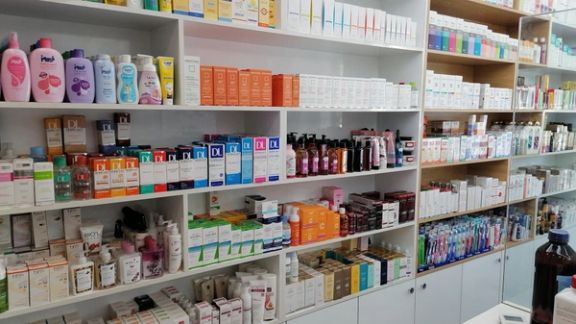
Shortages have hit Iran’s pharmaceutical industry which heavily relies on the cash-strapped government for hard currency to import raw materials.
The shortage of imported ingredients has disrupted production of medicines, pharmaceutical companies say and according to local media, around 200 different types of common medicines and drugs used by hospitals are scarce or unavailable now.
The situation was predictable and all government bodies including the ministry of health were aware that a shortage of medicine was to occur in the third and fourth months of the Iranian year which started March 21, Mohammad Abdzadeh, chairman of pharmaceutical companies’ union told the semi-official Mehr news agency Sunday.
Abdzadeh explained that it takes around four months from the time that the government provides the hard currency required for importing ingredients until the time the medicine become available in the market.

Donya-ye Eghtesad economic daily Monday quoted Hosseinali Shariari, chairman of the parliament’s health committee, as saying that he has written a letter regarding the shortage to Supreme Leader Ali Khamenei and “good news is being heard” about it.
Shahriari said there was a scarcity of around 180 different medicines, including those required for thalassemia patients and coagulation factor VII used to treat and prevent bleeding episodes in patients with Hemophilia A and B and that “and the list is getting longer.”
The media blame the government and the central bank for the shortage and its adverse effect on public health.
The government, which has been short of foreign currencies mainly due to US oil sanctions, has been exporting a lot more oil in recent months, nearly six times more than in 2019, at around 1.5 million barrels per day. However, Iran’s currency rial is near its all-time low and inflation remains high at more than 60 percent.
“How is that now after selling 1.6m barrels of oil per day, the government is unable to procure medicine like the previous government if it was so capable that it could import so much [Covid] vaccines when it came to office [in August 2021],” reformist Ham-Mihan newspaper asked Sunday, while pointing out that medicine is not included in the list of sanctions.
Many Iranians also wonder how the government is facing such a financial crisis if it is exporting around 700,000 more barrels of oil per day than in 2021.
“The psychological outcome of this situation is rising tension between people and the healthcare system, discontent with the government while its actual result is a decline in people’s life expectancy, particularly when [shortage of medicine] is coupled with food poverty which will definitely cause a drop in life expectancy,” the newspaper wrote.
Spokesman of Iran's customs said in November that the country had imported $2.8b of medicine and pharmaceutical ingredients in seven months.
While claiming that the country is producing 99 percent of its medicine requirements, the head of Iran's food and drug administration, Heydar Mohammadi had warned in February that the 690,000 billion rial budget (around $1.4 billion) allocated by the government for pharmaceuticals would only suffice for three months. According to Mohammadi, around 70 percent of ingredients for production of medicine must be imported.
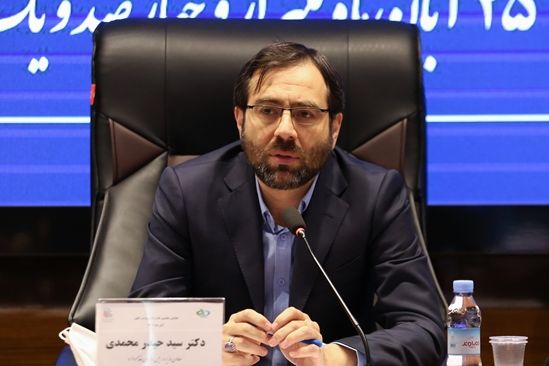
Claiming Sunday in an interview with the parliament’s news agency, that currently the situation is more “stable” compared to nine months ago, Mohammadi admitted that the slightest delay in providing hard currency could cause problems for the industry.
Officials including Mohammadi have also admitted that delay in payments by government agencies such as the welfare organization and insurance companies is also causing shortage of liquidity to pharmaceutical companies and affecting production.
In January an official of Iran’s drug importers union, Mojtaba Bourbour, challenged government officials’ claims about self-sufficiency in production of medicine and said not only up to 90 percent of raw material is imported from countries such as China and India, but also some medicines are imported from China but sold under Iranian labels.
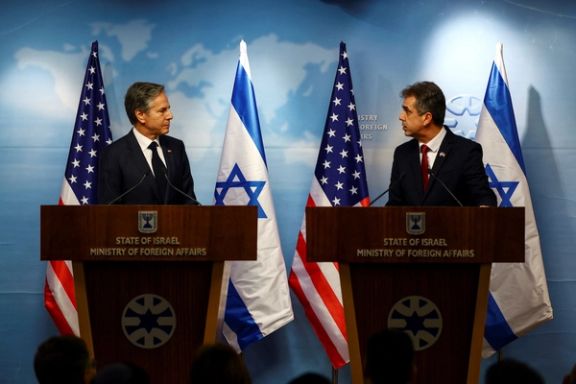
US and Israeli foreign ministers held a telephone call on Tuesday to discuss “Iran’s destabilizing behavior, among other issues, the State Department announced.
Secretary of State Antony Blinken and Israeli Foreign Minister Eli Cohen consulted over issues of Iran and “Israel’s integration into the region,” a possible reference to US efforts to expand the Abraham Accords by convincing Saudi Arabia to establish relations with Israel.
An announcement by State Department also said that “Secretary Blinken conveyed concern over the recent escalation of violence, which has directly affected US citizens in the West Bank, and underscored the need for parties to work further to further de-escalate the situation.”
Israeli media reported on Tuesday thatthe Palestinian Islamic Jihad (PIJ)is buying weapons and loyalty in the West Bank using Iranian money.
The PIJ has established several armed cells and recruited dozens of gunmen in the northern West Bank, specifically in Jenin and Nablus. “The PIJ has become a dominant force in the northern West Bank, largely thanks to the financial aid it receives from Iran," a source told Israel's Jerusalem Post.
Since March, the Iranian regime has intensified its support to Palestinian militant groups and has publicly urged them to attack targets in Israel. Tehran officials expressed gratification at a serious flare-up of violence in April and pledged more support.
Defense Minister Yoav Gallant announced Tuesday that Israel seized millions of dollars’ worth of digital funds intended for use by Iranian-backed Lebanese group Hezbollah and the Quds Force arm of the Revolutionary Guards.
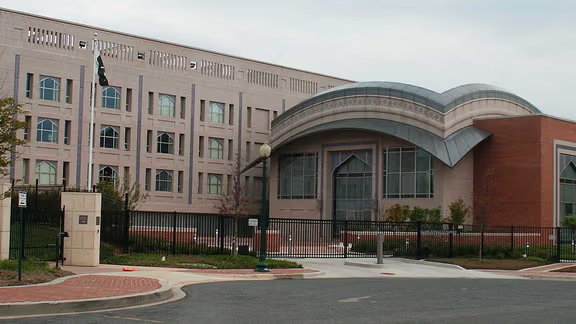
Iran’s Interests Section in Washington DC has been accused of corruption and one of its staff now faces prosecution.
A political activist has told Iran International that Manouchehr Jafarzadeh is being prosecuted for charging extra fees for consular services.
Activist Siamak Aram said personnel of the office ask for cash in return for consular services.
According to Aram, the investigations are underway to get more information about the illegal act by Jafarzadeh; however, there are possibilities of systematic corruption to conduct money laundering.
Earlier this week, Iran's chief justice claimed he is battling corruption in government bodies.
In a televised interview aired by the state broadcaster IRIB Wednesday evening, Gholamreza Mohseni-Ejei said he and the organizations under his supervision would never shut their eyes to corruption and infringements of the law, and in some cases their actions have upset the government of President Ebrahim Raisi and caused complaints.
Last year, the former chief of Iran's state television, Mohammad Sarafraz accused the government and banking system of systematic corruption that has led to vast income gaps among Iranians.
Sarafraz accused the IRGC and the intelligence agencies of “systematic corruption which is likely to land the country in deep trouble,” saying that most of what the intelligence agencies and the IRGC do in Iran are illegal, but they can get away with it as no one is in control. Meanwhile, none of these organizations assume responsibility for the instability their actions create.

As part of efforts to put pressure on Iran’s outspoken Sunni leader Mowlavi Abdolhamid, the government has arrested several people from his inner circle.
According to local sources close to the prominent Sunni cleric, among those arrested is Abdol-Nasir Shahbakhsh, his grandson whom security agents arrested "violently" on the street and took him to an unknown location.
Shahbaksh works for the Makki Mosque, where Abdolhamid delivers his speeches. He was recently summoned by interrogated by the intelligence ministry in Zahedan, a Baluch-majority city and capital of southeastern Sistan-Baluchistan province.
The Makki mosque in Zahedan has been a center of resistance to the government since popular protests began in September 2022. This is where Abdolhamid delivers his weekly sermons, openly criticizing the regime headed by Supreme Leader Ali Khamenei.
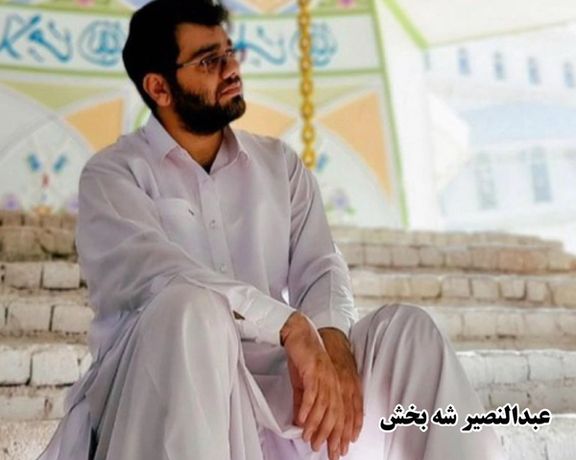
Haalvsh website, which covers developments in Sistan-Baluchestan, said that two other people who were arrested on Tuesday were cameramen of the mosque, identifying them as Osameh Shahbakhsh and Hamed Mohammadi-Nik.
Security agents also raided Osameh Shahbakhsh’s home, assaulted members of his family and confiscated his electronic devices.
On Saturday, June 24, a member of the mosque’s security personnel, Abdolvahed Shahlibar, was also summoned by the judiciary and was arrested afterwards.
Shir-Ahmad Shirani, the chief editor of Haalvsh, told Radio Farda that the arrests seem to be the regime’s reactions to the news of a botched assassination attempt against Abdolhamid. He added that several other people have been called in by the authorities or arrested over the publication of the report.
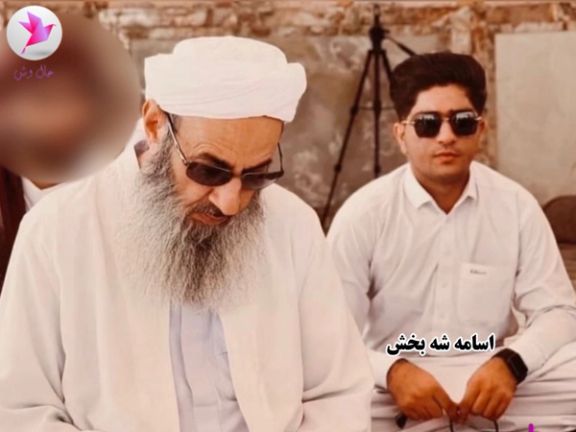
The arrests came a few days after reports surfaced that the Revolutionary Guard’s intelligence arm had assigned a hitman to poison and kill the vocal Sunni cleric of Zahedan. The security guards at Makki Mosque arrested a man pretending to be a religious student who allegedly wanted to assassinate the Sunni leader.
According to the report, the suspect admitted that he received a salary of 150 million rials ($300) per week since the beginning of his operation.
Officially known as Sheikh Abdolhamdid Esmailzehi, the Sunni cleric is widely popular because of his willingness to challenge Khamenei’s absolute authority. In addition, the country's Sunni minority are heavily persecuted and the cleric has long been an advocate of minority rights, to the ire of the regime.
The prominent religious leader has been relentless, making fiery speeches against the heavy crackdown and killing of protesters, and calling government actions "felony".
In November, the outspoken Sunni Imam said women, ethnic and religious groups, and minorities have faced discrimination after the establishment of the Islamic Republic in 1979. He also called for an internationally monitored referendum in Iran, arguing that by killing and repression the government cannot push back a nation.
Abdolhamid also said earlier that officials should not be clerics, noting that not all Iranian people are "religious" and as such do not accept religious authority.
Last Friday, June 23, was the 38th consecutive week that people of the province held demonstrations against the government following the death in custody of Mahsa Amini in September, but the rallies were significantly larger following calls for protests by Sunni clerics and activist groups as the regime seems to have intensified its campaign against their religious leader Mowlavi Abdolhamid.
On Sunday, local media revealed the identities of at least 14 Baluch citizens arrested by the security forces, including four children.
Earlier in the month, the office of the outspoken Sunni leader of Sistan and Baluchestan province said the Ministry of Intelligence prevented him from attending Hajj pilgrimage.